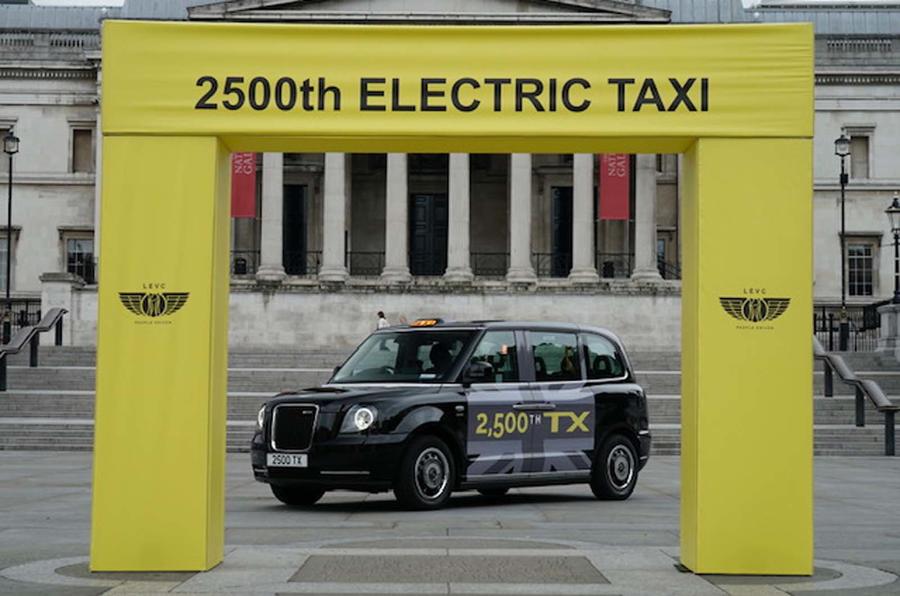LEVC has 2000 TX taxis in operation in London
Company CEO says it will not launch a low-cost version of the TX, and there are no plans to move production out of Britain
Taxi maker London Electric Vehicle Company (LEVC) says it is not planning to launch a true low-cost variant of its electrified TX, but will launch a lower-spec variant later this year.
Speaking at an event to celebrate the completion of the 2500th TX model, company boss Joerg Hoffman also expressed a desire for the company to grow beyond its market in the capital. “This brand will only survive if it moves away from the London-focused niche”, he said, expressing a desire for the company to be viewed as a provider of ‘green mobility solutions’.
Conversely, Hoffman said its electrified taxi is a successful product, stating: “We are happy with demand for the TX.”
Hoffman, who took over as company boss in early 2019, said London’s stringent taxi regulations make development of a cheaper model impractical.
Production of a slightly lower-spec variant of the TX, called Taxi Icon, will begin in October, but this will be unable to operate in London due to subtle equipment downgrades.
The Taxi Icon will, however, be eligible for use in other UK and European cities, and could be adopted by mobility services such as Uber and Lyft.
Many have viewed the £55,600 list price of the TX as inhibitive for potential buyers, but Hoffman identifies cheaper ongoing operating costs as the reason behind the model’s appeal.
“Cost of ownership is the most important thing,” he argued, calling to attention the powertrain’s minimal maintenance costs and lengthy service intervals, as well as the approximate £100 per week fuel savings compared to its diesel-powered TX4 predecessor.
“You speak to old TX4 drivers who are so keen to get out of their old diesel cars”, he added, highlighting the new model’s 80-mile electric-only range and ease of use as significant factors in its increasing popularity.

LEVC plans to diversify its product line-up
The company views black cab drivers as its most loyal customers, but is considering ways of diversifying its product portfolio beyond the TX and recently revealed LCV van.
A pure-electric version of the TX, however, is not imminent, with Hoffman stating there is no battery technology currently available that offers the right balance between range and price. LEVC is developing autonomous technology, he said, but it won’t be seen on production vehicles within the next five years.
The TX and LCV are built at LEVC’s new production facility in Coventry. Hoffman said parent company Geely has no plans to shut down the factory in the event of a no-deal Brexit, given its recent £500 million investment in the British firm’s redevelopment.
“We are a UK-based company”, he said, urging politicians “to be reasonable enough not to go down the path of no deal”. The company is reviewing its European supply chain, and would double its component stockpile to ensure continued production following a no-deal scenario.
A temporary shutdown would be made inevitable by a no-deal Brexit, however, as a result of increased export fees and parts shortages.
Earlier this year, around 40 LEVC staff were made redundant as part of a move to cut costs ahead of what the company called “more challenging economic conditions”.
Currently, London is LEVC’s biggest market, with 2000 TX models in operation, but the company aims to export 70% of its products by 2022. Hoffman pointed to the shrinking demand for private hire vehicles as the reason behind the ambitious expansion plans.
Read more
LEVC produces 2500th TX electrified taxi in Coventry
LEVC reveals new taxi-based range-extender delivery van
Year of the underdog: Geely’s rise from obscurity to the top
Source: Autocar
